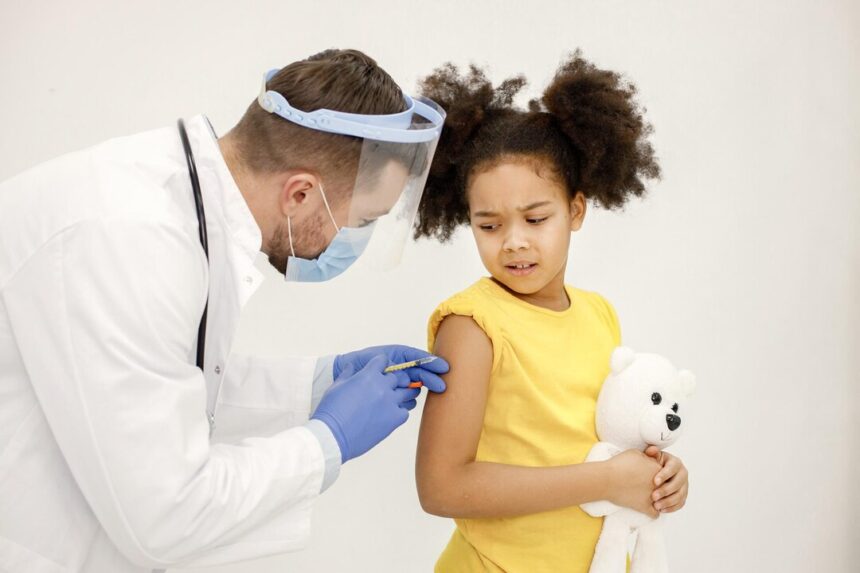Childhood vaccinations play a crucial role in protecting children from serious and potentially life-threatening diseases. Vaccines are among the most effective tools for preventing infectious diseases and have led to significant reductions in illness, disability, and death worldwide. However, misinformation and misconceptions about vaccines can lead to vaccine hesitancy and reluctance among some parents. To help parents make informed decisions about their children’s health, it’s essential to understand the importance of childhood vaccinations, how they work, and their safety and effectiveness. Here’s what parents need to know:
1. The Importance of Vaccination:
Childhood vaccinations are essential for preventing the spread of infectious diseases and protecting individual and community health. Vaccines stimulate the immune system to recognize and defend against specific pathogens, such as bacteria or viruses, without causing the disease itself. By vaccinating children, parents not only protect their own child but also contribute to herd immunity, reducing the risk of outbreaks and protecting vulnerable individuals who cannot be vaccinated, such as newborns or individuals with weakened immune systems.
2. Recommended Vaccines for Children:
The Centers for Disease Control and Prevention (CDC) and the World Health Organization (WHO) recommend a series of vaccines for children from birth through adolescence to protect against various diseases. Common childhood vaccines include those for measles, mumps, rubella (MMR), diphtheria, tetanus, and pertussis (DTaP), polio, hepatitis B, Haemophilus influenzae type b (Hib), pneumococcal disease, rotavirus, and influenza. Vaccination schedules may vary slightly depending on factors such as age, health status, and regional recommendations.
3. Vaccine Safety and Effectiveness:
Childhood vaccines undergo rigorous testing and evaluation to ensure their safety, efficacy, and quality. Before a vaccine is licensed for use, it undergoes extensive clinical trials to assess its safety and effectiveness in preventing disease. Additionally, vaccines are continuously monitored for safety through post-licensure surveillance systems. The benefits of vaccination far outweigh the risks, and serious adverse reactions to vaccines are rare. Vaccines have been proven to be one of the safest and most effective ways to prevent infectious diseases and their complications.
4. Addressing Vaccine Hesitancy:
Vaccine hesitancy, or the delay or refusal of vaccines despite the availability of vaccination services, is a growing concern globally. Parents may have concerns about vaccine safety, efficacy, or necessity, often fueled by misinformation and myths circulated on social media and other platforms. It’s essential for healthcare providers to address parents’ concerns with accurate information, empathy, and understanding. Open communication, education, and building trust are key strategies for addressing vaccine hesitancy and increasing vaccine acceptance.
5. Community Immunity and Herd Immunity:
Community immunity, also known as herd immunity, occurs when a significant portion of the population is vaccinated against a contagious disease, reducing the likelihood of transmission and protecting those who are not vaccinated. Herd immunity is particularly important for protecting vulnerable individuals who cannot be vaccinated, such as infants, pregnant women, and individuals with certain medical conditions. By vaccinating children according to recommended schedules, parents contribute to community immunity and help protect the health of the broader community.
6. Access to Vaccination Services:
Access to vaccination services is essential for ensuring that all children receive the vaccines they need to stay healthy. Healthcare providers, public health agencies, and community organizations play a crucial role in providing access to vaccines, including routine childhood immunizations, catch-up vaccinations, and flu shots. Efforts to improve access to vaccination services, particularly in underserved communities, are essential for reducing disparities in vaccine coverage and improving overall immunization rates.
Childhood vaccinations are a cornerstone of public health and play a vital role in protecting children from preventable diseases. By understanding the importance of vaccination, addressing concerns with accurate information, and ensuring access to vaccination services, parents can make informed decisions to protect their children’s health and contribute to the health of the community. Vaccines save lives, prevent illness and disability, and are a critical component of promoting a healthier future for all children.










